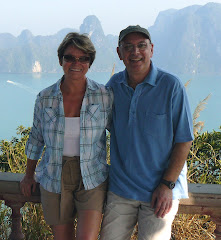 We spent the weekend at a massively expensive hotel in Brighton. Well, I’m not saving up for anything. And the food was terrific - as was the weather, the coastline and the conversation.
We spent the weekend at a massively expensive hotel in Brighton. Well, I’m not saving up for anything. And the food was terrific - as was the weather, the coastline and the conversation.It was Katy’s 25th birthday and we’re all very proud of her because despite everything that’s going on at the moment, she’s been promoted at work and named “employee of the month” (which is a good thing, obviously). Dan’s girlfriend, Emily, came down, as did Katy’s oldest schoolfriend, also called Katy, and we all had dinner together and it was just lovely. A brighten weekend (see what I did there).
A word of caution, however, about the Hotel du Vin. It’s all very stylish of course – but what exactly do they mean by the term superior rooms? Superior to what? Superior to the inferior rooms down the corridor? And you’re stuffed if you have a car. Because you have to park it in a foul-smelling graffiti-ridden underground bunker which Brighton Council will charge you £15 for the privilege. In this blog, you get free hotel reviews with every health update.
I do feel the world is conspiring against me unduly. The devil – disguised as Virgin Media – disrupted my emails and wiped my inbox. Then he forced the remote control on my car to stop working and made it impossible to fit a new light in the oven. Finally he dressed up as Barclays Bank and sent my ISA into oblivion. He’s currently working at the Chelsea Building Society (in case you’re thinking of opening an account there).
On my last visit to the Marsden, I was shown pictures of my cancer from the latest CT scan. What a disappointment. Somehow I’d expected something mean and aggressive with sharp teeth, like a fluorescent Pac Man or mad grinning space invader. Nothing of the sort. Instead, it’s a couple of miserable dark patches on a monochrome screen, with a few other dark patches as offshoots, all barely distinguishable from the rest of my dull grey interior. It doesn't even have a solid shape. It's just shadows.
The object of the scan was to decide on treatment. But I’ve been overtaken by events. I have new symptoms. I’ll spare you the details, but suffice to say, they would delay chemotherapy even if I thought time was a factor. (Which it isn’t, because nobody can predict anything). I will now probably be referred to yet another specialist at yet another hospital, where once again they will take my history and mislay my notes, which they will say don't really tell them anything anyway.
Indeed, looking back over the past few weeks, I have to conclude that my tours of London hospitals, with all the blood tests and CT scans and MRIs and liver biopsies; all the poking and prodding and inserting of needles; all the hot, sweaty, miserable tube journeys, haven’t really added anything significant to the original diagnosis on June 25. I could write everything new I’ve learned on the back of a postage stamp.
Meanwhile, my sister-in-law Pat (the cancer expert) kindly sent me John Diamond’s book about his cancer treatment. Somehow he managed to stay cheerful. Me too. No idea why. Maybe it’s a journalist thing.





